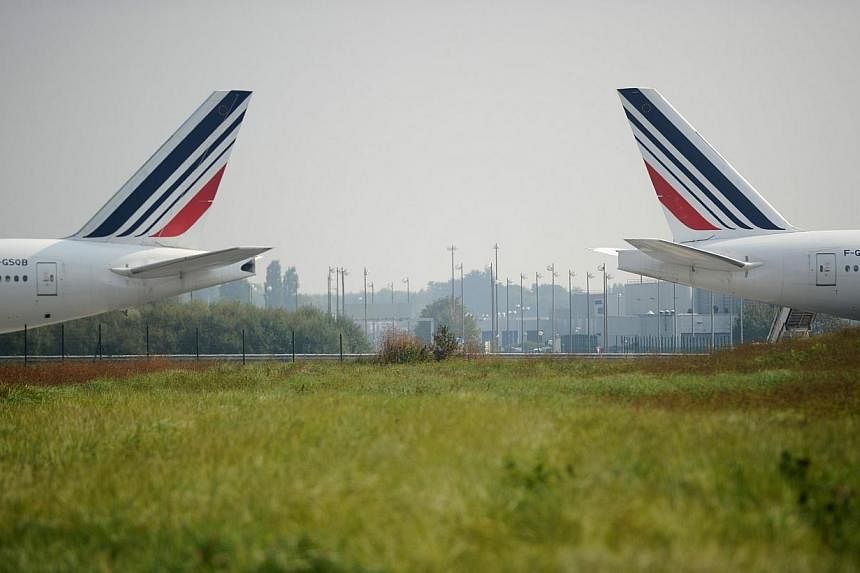PARIS (AFP) - Struggling French flag carrier Air France on Wednesday said last month's two-week strike would have an impact of around 500 million euros (S$808 million) on its bottom line for this year.
Taking into account the lost revenue during the strike and the knock-on impact of disgruntled passengers staying away in future, the impact over 2014 will be "in the order of 500 million euros", said financial director Pierre-Francois Riolacci.
"We need a few more days to finalise completely our estimates. But we think the impact on the third quarter will be in a range of 320-350 million euros," Riolacci said.
He said the knock-on consequences were harder to calculate exactly but warned there would be an impact both on the last quarter of the year and the first part of next year as Air France, Europe's second-largest airline, battles to win back its reputation.
"We made some savings (like in aviation fuel) because the planes were not flying," he noted.
"On the other hand, we had additional costs: putting passengers up, compensation or buying tickets from our competitors for some of our passengers, which we did not always get at the best price," he said.
Pilots at Air France waged the longest strike in the company's history between September 15 and 28 in protest at the group's plans to expand its low-cost subsidiary Transavia France.
The airline sees the development of Transavia France as crucial to compete in the cut-throat world of aviation which has been revolutionised by the arrival of low-cost operators like easyJet and Ryanair.
But the pilots, some of whom earn up to 250,000 euros per year, were worried their flights could be replaced by Transavia services or that the company would seek to use the cheaper Transavia pilots.
The strike knocked out more than 50 percent of Air France services and sparked political fury, with Prime Minister Manuel Valls saying the industrial action was harming the image of France abroad.
It also boosted Air France's rivals.
"With competitors like that it's not hard to see why Ryanair is the fastest-growing airline in Europe," company boss Michael O'Leary said dismissively.
Air France-KLM said its passenger figures were down 15.9 per cent in September compared to the same month the year before.
The wider group (including Dutch airline KLM, Transavia and Hop!) welcomed 5.7 million passengers aboard last month - a drop of 16.3 per cent compared to 2013.
The financial director stressed however that estimating the cost of the strike was an inexact science.
"It is not possible to estimate precisely how much of this decline is due to the strike and how much is due to the disappointing trend in demand we observed at the beginning of summer and later on," he said.
Air France has since launched an advertising blitz to, in Riolacci's words, "get people back into our planes." The cost of this campaign has been included in the 500 million euro estimate, he said.
Relations between management and the unions are still strained.
A crisis meeting on Tuesday to chart a way forward after the strike broke up shortly after starting.

